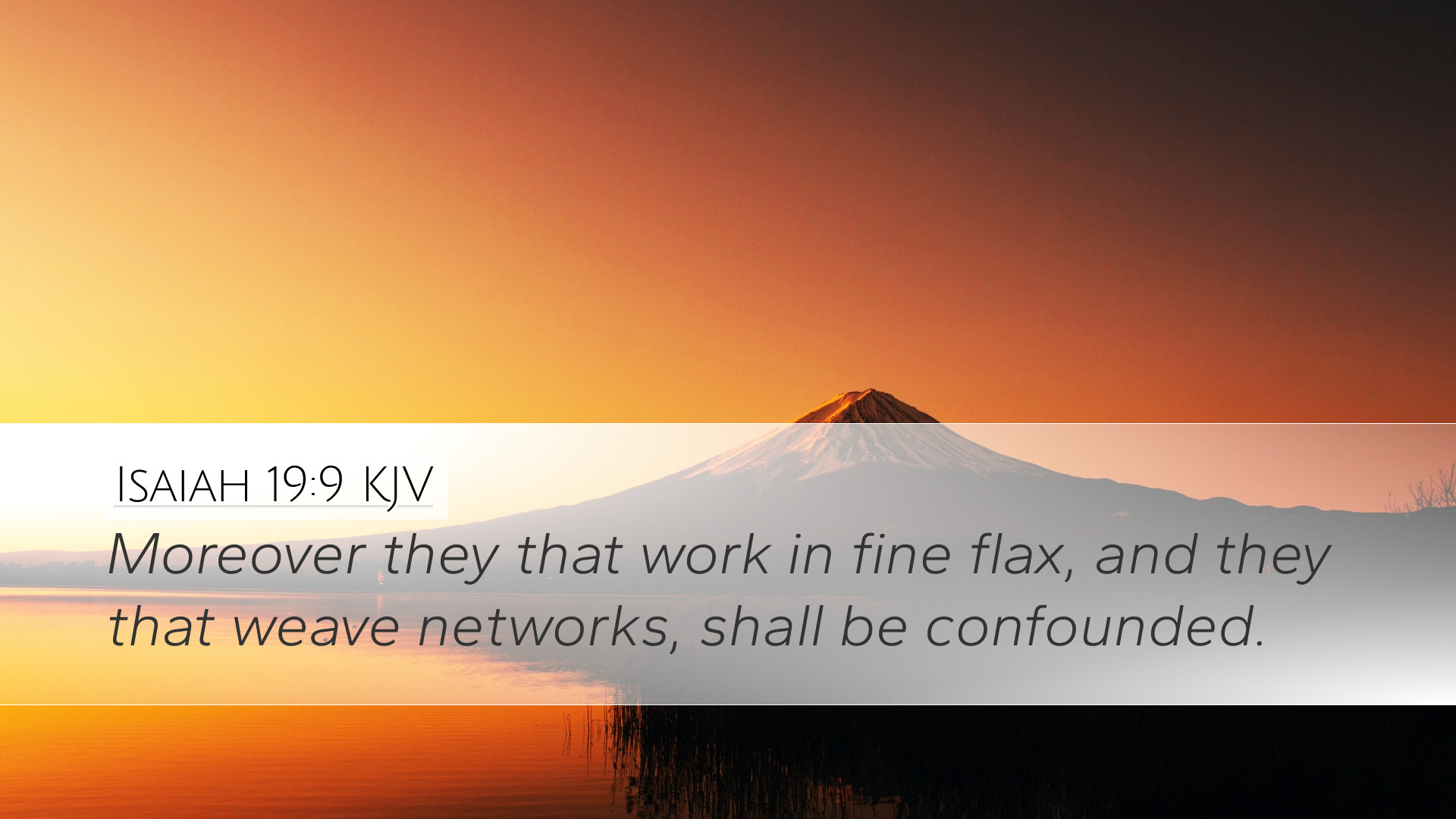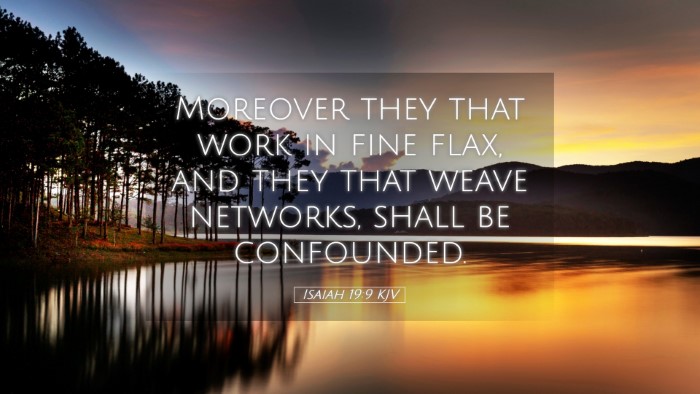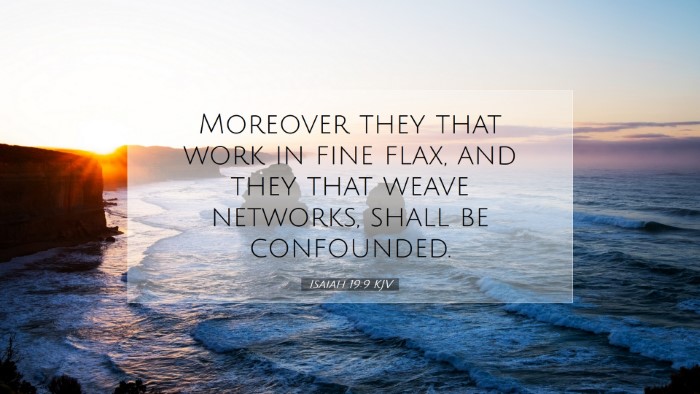Commentary on Isaiah 19:9
Isaiah 19:9 states, "Moreover they that work in fine flax, and they that weave networks, shall be confounded." This verse serves as a poignant reflection on the socio-economic fabric of Egypt during a time when God’s judgment looms over the nation. Through the insights extracted from public domain commentaries, we can explore the various dimensions of this verse in a meaningful way for pastors, students, theologians, and Bible scholars.
Contextual Background
To fully appreciate Isaiah 19:9, one must understand the broader context of the prophecy. Isaiah, a key prophetic figure, addresses the impending judgment on Egypt due to their idolatry and reliance on earthly powers rather than the Lord. This chapter reveals not only God’s displeasure with Egypt but also His plans to redeem and restore the nation eventually.
The Nature of Work in Egypt
In this verse, there is a specific mention of workers involved in the textile industry, particularly those engaged in fine flax and weaving. Matthew Henry notes that these artisans represented a significant part of the Egyptian economy, which was deeply interwoven with agricultural and manufacturing exports. He emphasizes that the textile crafts were renowned, but here, they are depicted to be in vain as God’s judgment disturbs their labor, leading to a state of confusion.
Symbolism of Weaving and Work
Albert Barnes elaborates on the symbolism inherent in weaving and the processes connected with fine flax. The act of weaving can serve as a metaphor for the societal structures and industries dependent on well-being, order, and prosperity. However, upon divine judgment, these structures are shown to be precarious and ultimately futile when disconnected from divine favor. This connection implies that human efforts, no matter how skilled, will ultimately fail if they are not rooted in God's will.
Theological Implications
When examining Isaiah 19:9, one must consider the theological implications of God's judgment not just on individuals but on nations and economies. Adam Clarke points out that the disruption caused by God's displeasure can lead to widespread uncertainty and chaos, as seen in the livelihoods of the workers mentioned. This serves as a stark reminder that nations and societies neglect their moral and spiritual obligations to God at their peril.
Divine Judgment and Human Endeavor
Both Henry and Barnes talk about the tension between human endeavor and divine sanction. While industry and economy are vital aspects of society, this verse underscores that without divine blessing, all human effort is rendered futile. The confusion of the workers serves as a literal and figurative representation of the broader chaos within Egypt as they grapple with the consequences of divine judgment.
Practical Applications
For pastors and church leaders, the insights from Isaiah 19:9 remind us of the necessity of aligning church and community activities with divine purposes. The emphasis on labor and its challenges encourages a holistic understanding of worship that includes our work lives. It is crucial to communicate and teach congregations about the intertwining of faith with daily labor and the importance of seeking God's guidance in all pursuits.
Lessons for Modern Believers
In a contemporary context, believers are called to reflect on how they view their labor and its purpose. Are we engaging in work that glorifies God? In what ways might we find ourselves “confounded” by pursuing efforts that do not seek God’s direction? This passage encourages introspection about our priorities, reminding us to seek God in our professional endeavors and to ensure that our work is meaningful and anchored in faith.
Conclusion
Isaiah 19:9 acts as a warning to those who rely solely on their skills and industries for security and prosperity. The imagery of artisans confounded serves as a deep lesson about the importance of recognizing God’s sovereignty over our endeavors. In a world where professions and economies constantly face turmoil and uncertainty, believers are called to remember that true confidence lies in the Lord alone.


